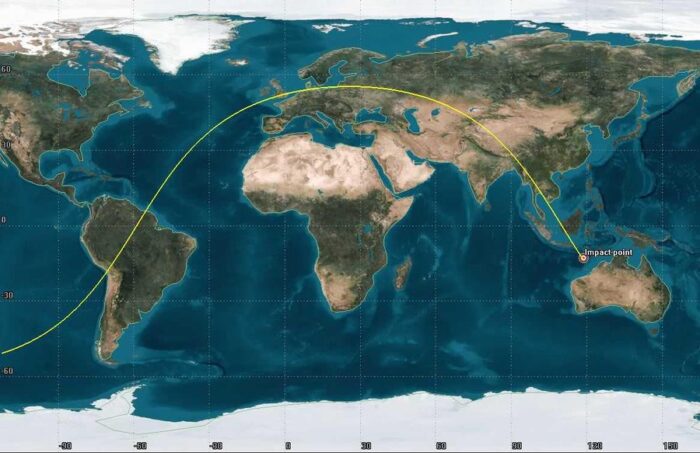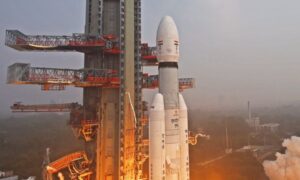
Picture : ISRO/ X
Adding yet another feather in it’s cap ISRO has said the fourth edition of the PSLV Orbital platform Experiment Module (POEM-4), the repurposed spent upper stage of the Polar Satellite Launch Vehicle used for the space docking experiment mission, has re-entered the Earth’s atmosphere.
“Finally, the POEM-4 module re-entered the atmosphere and impacted at 02:33 UTC (08:03 IST), April 04, 2025, in the Indian Ocean,” ISRO said in a post on ‘X’.
Atmospheric Re-entry of POEM-4
On December 30, 2024, ISRO’s PSLV-C60 launched twin SPADEX satellites and after injecting satellites at 475 km altitude, the specially configured upper stage (PS4) of PSLV-C60 (called PSLV Orbital Experimental Module in short POEM-4) was also… pic.twitter.com/teQGV5EASx
— ISRO (@isro) April 4, 2025
The safe re-entry of POEM-4 is yet another accomplishment of ISRO’s commitment to contain the growth of space debris, reaffirming the prominent role of the space agency in the long-term sustainability of outer space environment and Debris Free Space Mission (DFSM), it said.
On December 30, 2024, ISRO’s PSLV-C60 launched twin SPADEX (Space Docking Experiment) satellites and after injecting satellites at 475 km altitude, the specially configured upper stage (PS4) of PSLV-C60 (called PSLV Orbital Experimental Module in short POEM-4) was also almost in the same orbit.
Noting that subsequently, POEM-4 was de-orbited by engine restarts to a nearly circular orbit at 350 km altitude with 55.2 inclination, ISRO said, the PS4 was then passivated by venting the leftover fuel to minimise any potential risk for accidental break-up.
“During its mission life, POEM-4 hosted altogether 24 payloads (14 payloads from ISRO and 10 from various NGEs) and all payloads worked as expected yielding valuable science data,” it said.
While the POEM-4 was in orbit, it was continuously tracked by ISRO’s Radar Facilities and United States Space Command (USSPACECOM) facilities as well.
From carrying rocket parts on bicycles and satellites on bullock carts in the 1970s, India has become one of the world leaders in the space sector through its successful Mars orbiter and Chandrayaan missions, which have also made several world records, ISRO chairman V Narayanan said .
Speaking at the 27th convocation of the Indian Institutes of Management (IIM) – Kozhikode, Narayanan said the country has come a long way from when it launched its first satellite – Aryabhata — on a Soviet rocket.
Now India has 131 satellites in orbit, has launched 433 satellites for 34 countries and successfully completed its 100th launch on January 29 this year, he said.
[the_ad id=”55722″]


















